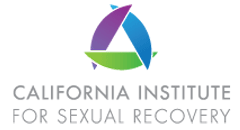Sexual Addiction Self-Assessment
-
Do you become restless or irritable when sex is not available?
Yes No -
Have you ever tried and failed to control the amount of sexual activity you engage in?
Yes No -
Do you feel a need to conceal from others either the nature or frequency of your sexual activities? Do you lead a “secret life”?
Yes No -
Have you had sex at inappropriate times, in inappropriate places, or with inappropriate partners?
Yes No -
Have you lost count of how many sexual partners you have had?
Yes No -
Do you continue to have compulsive sex despite negative consequences: disease, arrest, loss of finances, career, reputation, family or friends?
Yes No -
Do you feel your sexual activities compromise your personal values and spiritual development?
Yes No -
Do you feel shame about your sexual activities?
Yes No -
Have you neglected your family, friends, or work because of the time you spend in sexual activities?
Yes No -
Has your sexual behavior ever left you feeling hopeless, alienated from others, or suicidal?
Yes No
SCORE out of 10
If your score is 3 or more , your sexual behavior may be out of control. You might be an addict. The good news is that you are not alone, and there is help. If you are concerned about your sexual behavior, call for an appointment or more information. (415) 776-0960
- Therapy Services
- Workshops and Intensives
Individual Psychotherapy
Individual Psychotherapy is the most common modality of psychotherapeutic work, and typically involves the client meeting weekly with the therapist for a fifty-minute session. The therapy process involves a thorough client history and assessment process, collaboration in setting specific goals, and then developing and implementing a treatment plan to work toward the determined goals. The length of therapy can vary widely, depending on the client and the issues presented. Termination is indicated when goals have been satisfactorily achieved.
Therapy Groups for Men in Sexual Recovery
Group therapy can be very effective in overcoming sexual compulsivity, By combining educational elements with group psychotherapy, these groups will provide participants an opportunity to explore the patterns and cycles of their sexually compulsive behaviors, develop a range of recovery strategies, and work through the underlying roots of the addiction. The group will provide a safe place to:
- Break through isolation and connect with other men struggling with this issue
- Develop a network of understanding, compassion and support
- Acquire effective skills to break the power of the compulsion
- Deepen one‘s understanding of one‘s own addictive process
- Address underlying psychological issues which perpetuate cycles of compulsivity
- Work toward a healthy and integrated sexual life




